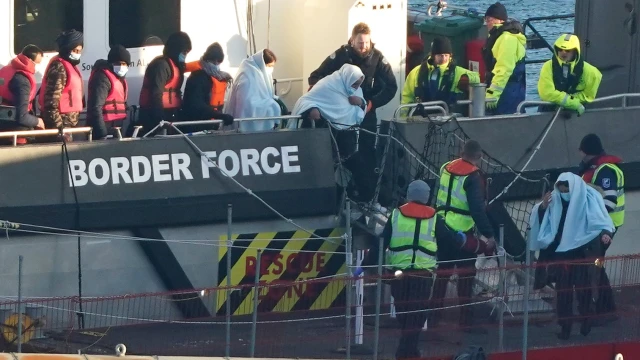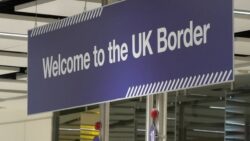Thousands of asylum claims to be considered without in-person interviews
The UK government has announced that it will consider the asylum claims of around 12,000 applicants from Afghanistan, Eritrea, Libya, Syria, and Yemen without face-to-face interviews.
Instead, a 10-page questionnaire will be used to decide the cases, in an attempt to reduce the backlog of asylum claims. Applicants will need to complete the form and answer up to 40 questions in English, which must be returned within 20 working days.
The Home Office has stated that criminal and security checks will still be conducted, and biometrics will be taken, but there will be no in-person interviews.
The move has been criticised by some who suggest that it is aimed at fulfilling the Prime Minister’s pledge to end the asylum backlog this year, rather than being focused on rigorous checks for identifying individuals who should not be granted asylum.

The Refugee Council and British Red Cross have previously recommended an accelerated process for asylum seekers from countries with high acceptance rates, and the exclusion of Sudanese and Iranian asylum seekers from the streamlined process is due to their slightly lower grant rates.
The backlog of asylum cases is expected to be more than 150,000, and the Home Office plans to double the number of caseworkers to deal with the record numbers waiting for a ruling.
Labour condemns ‘broken’ system
Labour leader Sir Keir Starmer spoke to BBC Breakfast, saying the asylum system was “broken” and there were “obvious risks” to what was being proposed.
He said many of the people arriving in the UK were brought by “criminal gangs who are making money out of human misery,” adding that Labour would establish a specialist unit within the National Crime Agency to deal with the issue.
Shadow home secretary Yvette Cooper said: “It’s damning that the Home Office isn’t doing this already, given Labour has been calling for the fast-tracking of cases – including for safe countries like Albania – for months and the UNHCR recommended it two years ago.
“Meanwhile, the asylum backlog has skyrocketed – up by 50% since Rishi Sunak promised to clear it.”
She added a Labour government would get return agreements in place so unsuccessful asylum seekers could be safely returned and take stronger action against gangs responsible for dangerous small boat crossings.
Have illegal crossings gone up since Brexit?
Yes, illegal crossings in the English Channel have increased since Brexit. While the reasons for the increase are complex, the end of free movement and the closure of legal routes to the UK for asylum seekers and refugees have been cited as contributing factors. Additionally, the COVID-19 pandemic has disrupted the usual methods of migration, leading some people to resort to more dangerous and irregular means of reaching the UK.
Why did Brexit not stop illegal crossings of the English channel?
Brexit did not stop illegal crossings of the English Channel because it primarily focused on ending the UK’s membership of the European Union and its free movement policy, rather than on controlling the country’s borders.
The UK’s departure from the EU did not necessarily mean that the country would have greater control over its borders, as EU member states are not required to allow free movement for non-EU citizens. Additionally, the closure of legal routes to the UK for asylum seekers and refugees may have contributed to a rise in illegal crossings, as people may feel they have no other option to reach the UK.
Moreover, the geography of the English Channel and the large number of small boats that are available to traffickers make it difficult to completely prevent illegal crossings.
The UK government has taken measures to deter illegal crossings, such as increasing patrols and implementing tougher sentences for those convicted of facilitating the crossings. However, it remains a complex issue with no easy solution.




